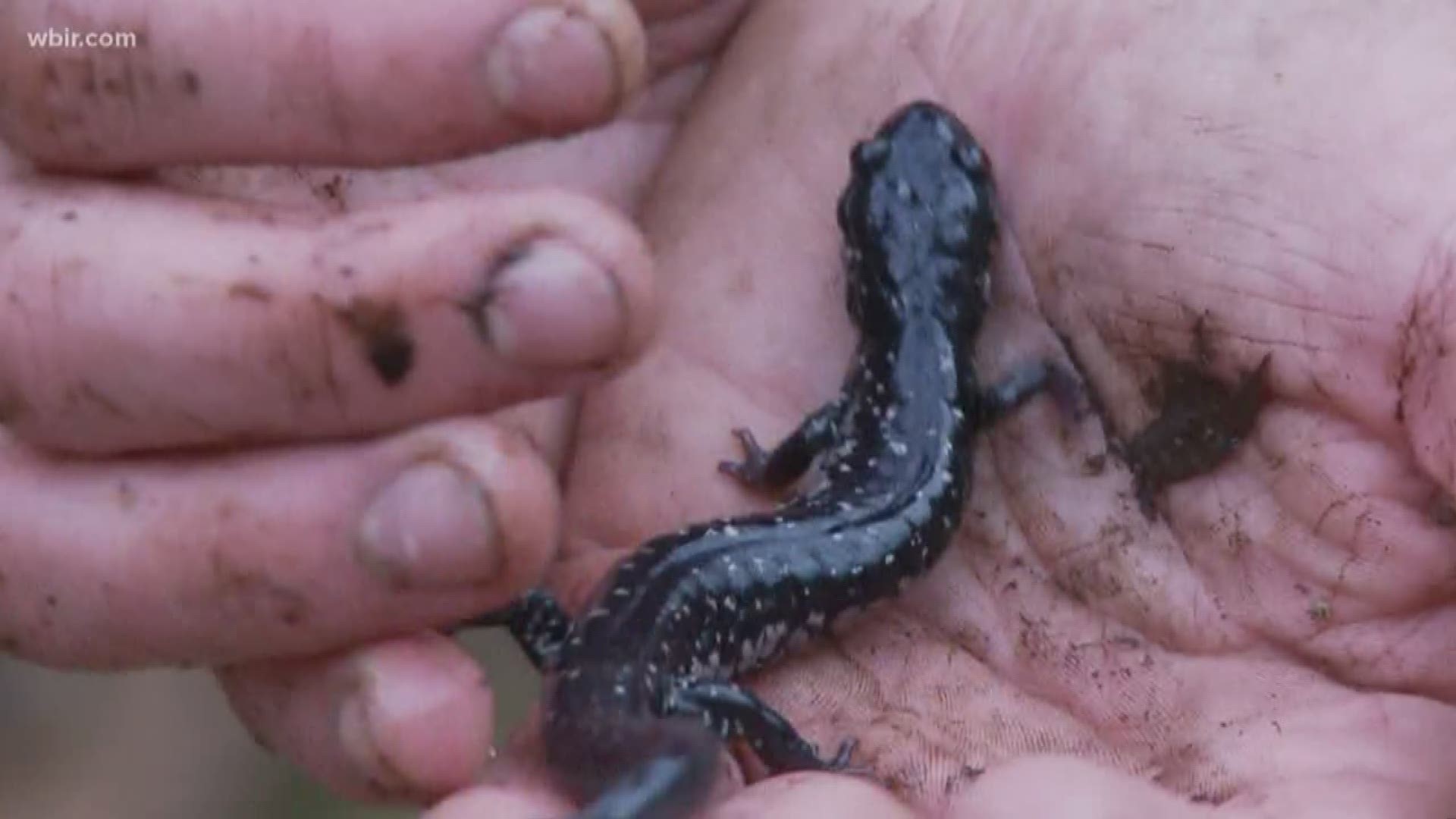Some salamanders change their behavior and are put at risk as the streams they live in get warmer, a new study found.
The results indicate that larger species of salamander are at a greater risk and that the changes can have a long-term impact on the ecology of Appalachian mountains and streams.
"Something's happening and we're trying to figure out what," Paul Super, a science coordinator for the Great Smoky Mountains National Park, said.
The study, published last month, studied salamanders in Appalachian streams outside the park. But Super said changing water temperatures are having an impact inside the park.
"Warmer water holds less oxygen so species like the hellbender are in our streams because they are cold and fast moving," he said.
He said some species are moving upstream, by as much as a mile, to find cooler waters.
"Ultimately if things continue to warm, we may not have enough stream to be suitable for some of the higher elevation species," he said.

